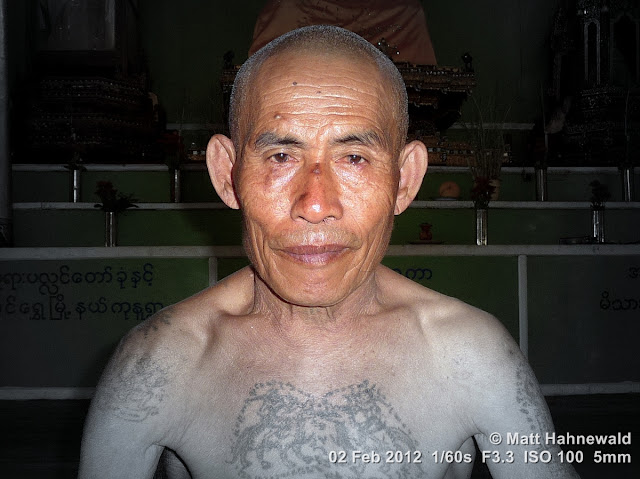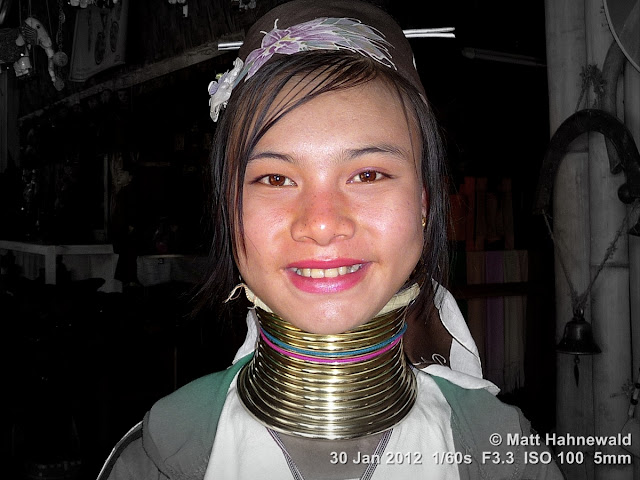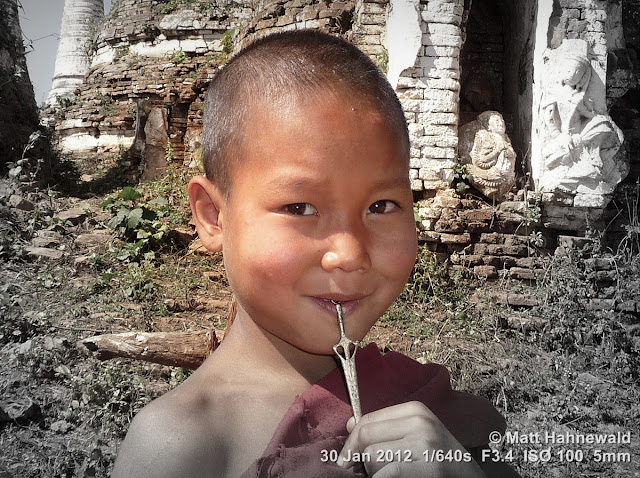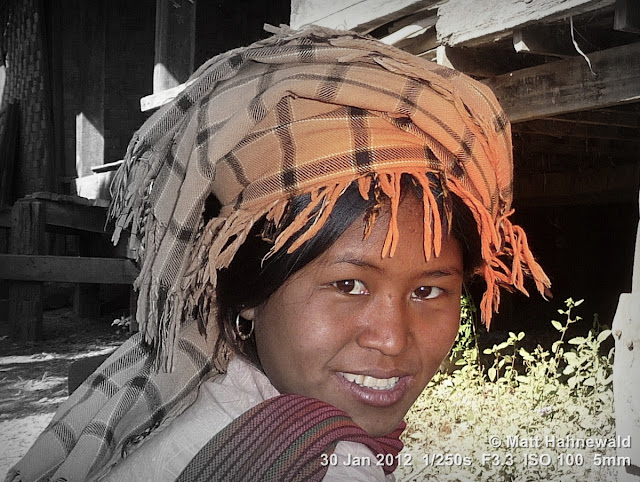The c. 70,000 people of the Inle Lake in Myanmar aka Burma live in numerous small villages along the lake shore and on the lake itself. The population consists predominantly of Intha, with a mix of other Shan, Danu and Bamar ethnicities. Most are devout Buddhists and live in simple houses of wood and woven bamboo on stilts. There are many traditional wooden Buddhist monasteries with friendly monks.
The Kayan are a
sub-group of the Red Karen aka Karenni people, a Tibeto-Burman ethnic minority of Burma aka Myanmar. The Padaung are a Kayan tribe and their name is a Shan
term for "the tribe whose women wear brass neck coils" (more context and photos here).
A temple boy lives in a wat and assists Buddhist monks. He carries the alms
bowls of the monks during the morning alms collection, and subsequently
prepares the monks’ food before eating the left-overs himself. Temple boys
follow the ten precepts. A few are sent to become temple boys to acquire merit; the majority, because they are given free room and board; and others to receive religious and moral instruction. Some temple boys go on to be ordained as monks themselves. Temple boys may undertake the formal step of sāmaṇera ordination as part of their role, depending on their age and local custom.
The Intha are members of a Tibeto-Burman ethnic group living around Inle Lake. They speak an archaic dialect of Burmese and are believed to have come from the Dawei area. They often live on Inle Lake
and support themselves through the tending of vegetable farms on
floating gardens. Also, the Intha are known for their leg-rowing
techniques and are traditionally Buddhists.
Closeup portrait photographs from the people of Burma's Inle Lake area in Matt Hahnewald's
Closeup portrait photographs of longneck women in Matt Hahnewald's












No comments:
Post a Comment